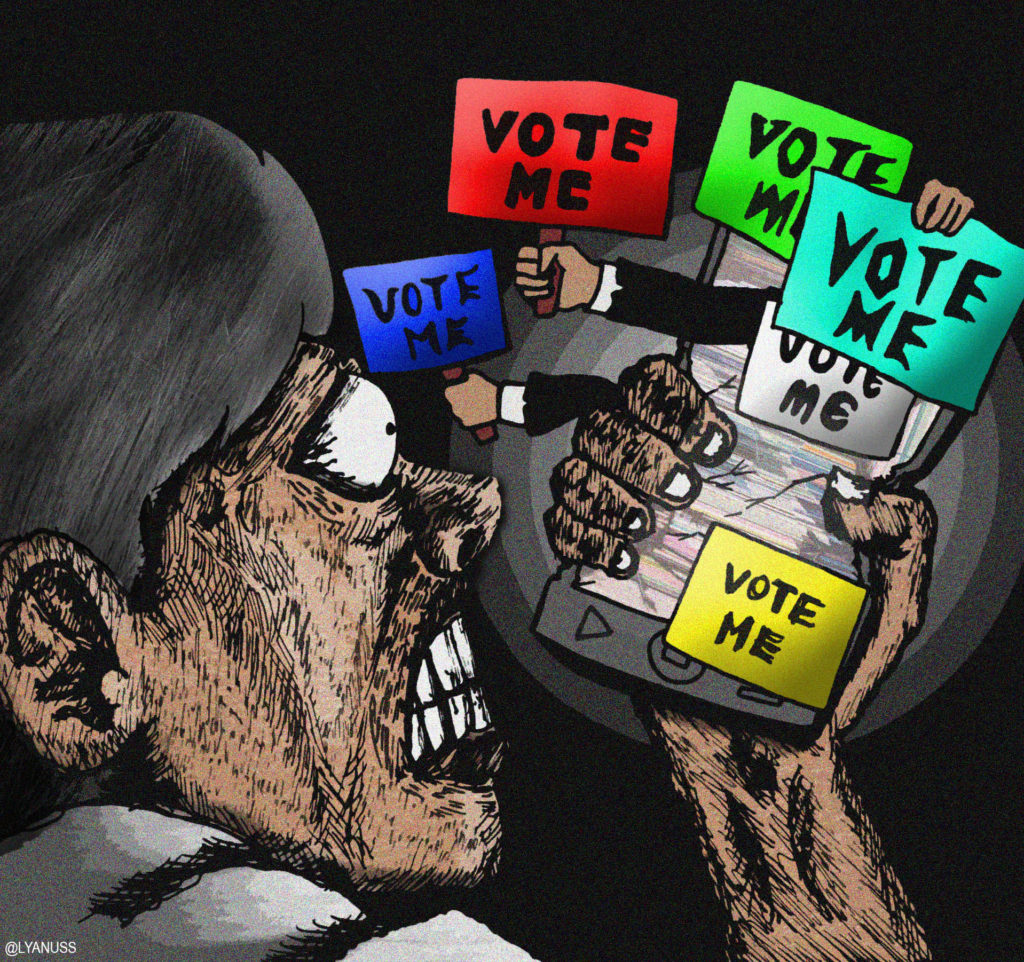by the Weekly Sillimanian | December 12, 2021

Imagine scrolling through the web, trying to find something to smile about, whether it is a stupid but strangely funny video on YouTube or one of your old high school friend’s witty statuses — you feel good, undistracted, and for once, unbothered about taking a break and unwinding. However, like all things, that eventually comes to an end when an advertisement for a political figure, one whose beliefs you do not necessarily agree with, pops out of nowhere. You start to remember the tensions about the upcoming elections and your good mood disappears.
If you have ever used the internet, you have most likely been in a situation similar to this. And regardless of which candidate you are rooting for, you probably find such advertisements obtrusive as well.
Politics is a game and the mechanics involve people and getting them to like you. Hence, on the internet, political figures use tactics to better know us, their constituents, and make their way to our advertisement algorithm on our online accounts.
Now, this is not inherently wrong. Strategies exist in all fields beyond politics like business and science. However, us voters need to understand these campaign strategies to make wiser decisions on who to vote for.
Moreover, these campaign strategies which scrutinize the vastness of cyberspace, with a large number of end-users accessing the internet, may also create a thin line with propaganda, knowing that the public is already there, waiting for whatever information they can consume. Propaganda can be a crafty strategy, hideous in nature, and can deliberately captivate both the intellect and emotions of the people, even if it means feeding them fabricated or sensationalized stories or information.
A common theme in online or multimedia campaigns involves the candidates in their best form: when they are turning over a box of donations, visiting rural areas, and interacting with children all while dressed nice and neat (but not too much) for an approachable and humble look.
But, looks can be deceiving. One can simply be an actor especially when they are in front of the cameras. They need emotion to capture their audience aside from their honeyed words. As voters and social media voters, we are spectators of the show, but it is our choice to get carried away by these appeals.
Again, these tactics do not automatically mean the candidate is not worth voting for, but we must ensure that the candidate is consistent with their personas in these advertisements. Does your candidate only do good when cameras are around or have they also shown credibility both before and during their political careers?
It should, therefore, be a must, to look beyond what the candidates display in front of the cameras. We need to read between the lines and look behind the scenes. Having a checklist of our ideal candidates is a good way to start, before we go with our profile hunt, delving deeper into the lives of these aspirants for the seat. Their personal lives can dictate their personality and their capability to lead and unite people with different ideals and visions in life.
Even if these advertisements were made for persuasion, as voters, how we handle and take these in is up to us. We have the ability to filter the information we consume beyond what technology can do. Our ability to think and make wise decisions is what separates us from machines.
Their strategies may be smart, but we can be smarter.


